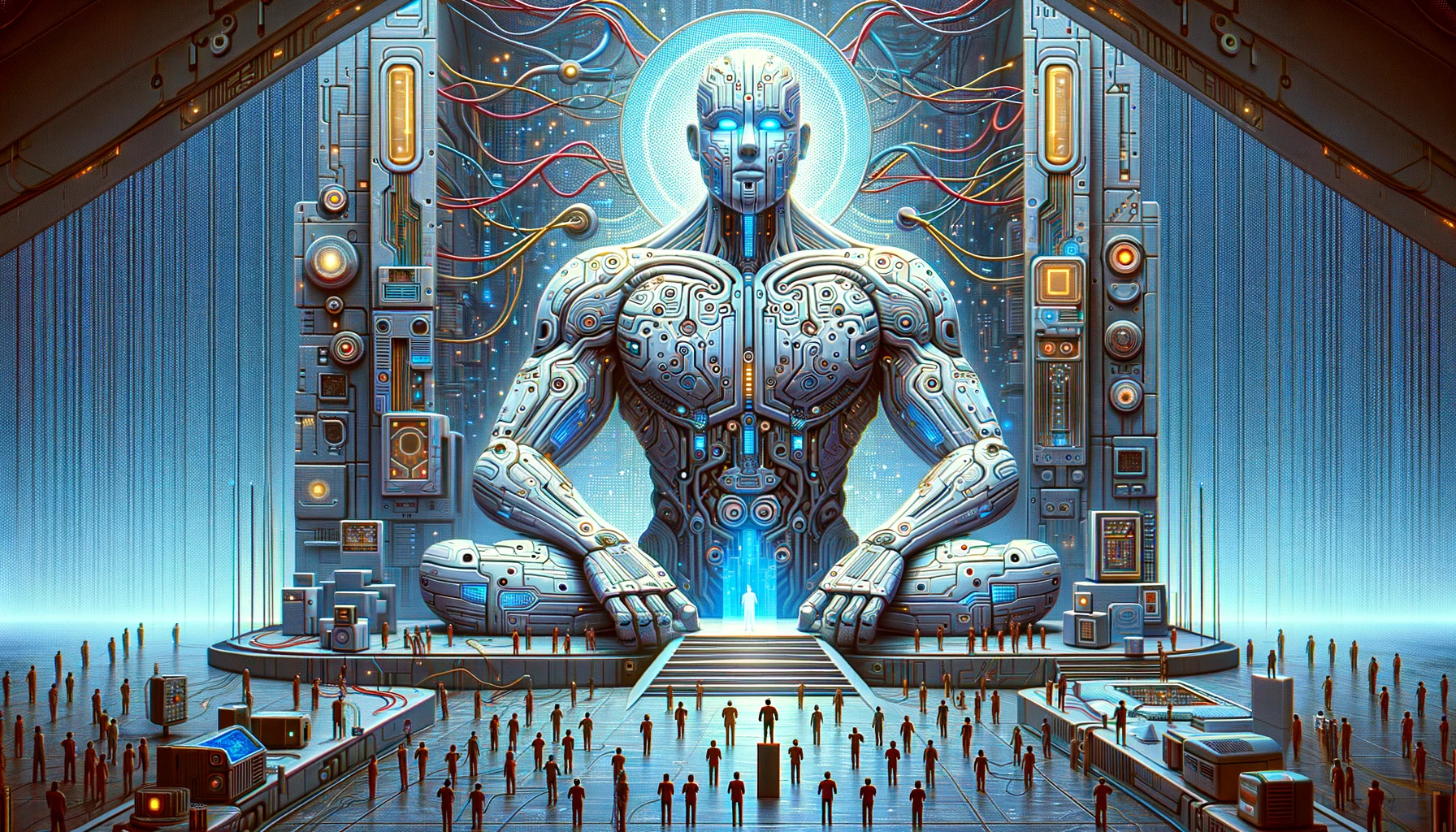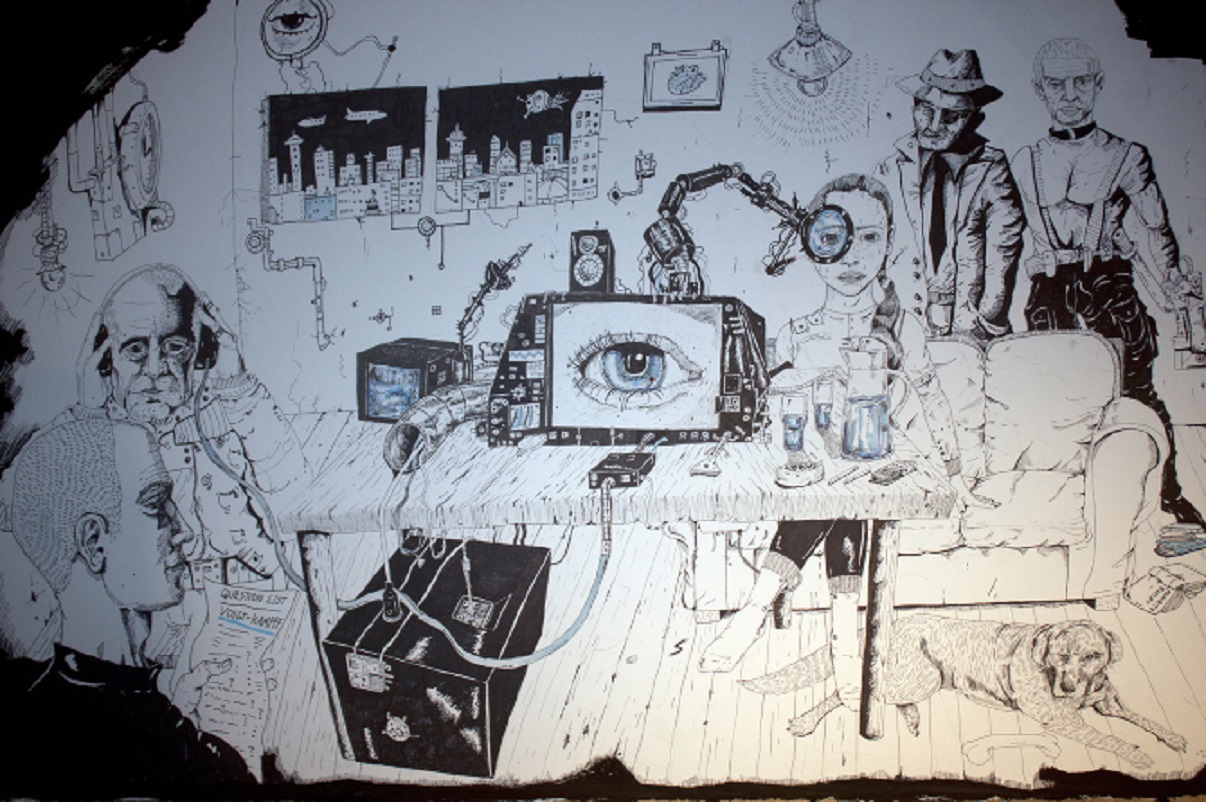There is nothing very mysterious or high-powered about this thing we call the self or ego-construct – we don’t need to be a professor of psychology in order to understand it. Being a professor of psychology wouldn’t help at all. The self or ego-construct is made up of only two things – ‘like’ and ‘dislike’. Everything about the self comes down to either like or dislike and there is absolutely no exception to this, not ever. The self-construct cannot be separated from like and dislike. The self-construct cannot be separated from bias.
We could say of the ego-construct that it is made up of two things, namely ‘like’ and ‘dislike’, or we could cut to the chase and say that it is made up of just the one thing – attachment. So if we want to understand this thing that we call ‘the self’ we need to understand what is called in Vedanta attachment. Attachment is what lies behind our ego-orientated perception of reality.
Attachment comes down to the need that we experience to change things in one way or another. This isn’t just a ‘common-or-garden everyday need’ however – that’s putting it too mildly. What we’re talking about here isn’t ‘a need that we experience’ so much as it is a force that totally and absolutely controls us. What we’re talking about is an extrinsically-originated force that totally controls us and traps us and which we are – crucially – completely incapable of questioning or examining.
We can easily see how this applies to ‘like and dislike’ – if I like something then I go all out to acquire it and at the same time I don’t question myself about what I’m doing. I take the mechanical force of liking, the mechanical force of attraction, totally for granted. If I dislike something then exactly the same thing is true – I take my dislike totally for granted. I don’t say that some external force is compelling me to be dislike something or to be averse to something – that wouldn’t be the same thing at all! If I am favourably disposed towards something (or unfavourably disposed to it) then this is a profoundly unreflective sort of thing – it is a rule I unthinkingly obey.
If I were to question my likes and dislikes in a thorough enough way then this would be tantamount to questioning the very nature and existence of the everyday self and who wants to do that? Certainly, the everyday self doesn’t want to do that – there’s no profit for it in doing this! Were the everyday self or ego-identity to closely examine the impulses that lie behind its behaviour it would very soon discover that there is nothing autonomous about it at all. It would discover that there is no autonomous entity there, only a well-regulated system of mechanical impulses.
The way the self gets to be the self is by immediately acting upon its impulses, its biases, its prejudices, its likes and dislikes, not by taking an interest in them. The self gets to be the self not via consciousness but via unconsciousness, in other words. We have no interest in understanding what is going on, we only want to ‘go along’ with what is going on! The ego-identity is characterized by its complete lack of curiosity regarding the world that it lives in, in other words. ‘Curiosity’ has been substituted for by something else, something far less noble – ‘the perennial search for advantage’….
The ’automatic obeying of the mechanical impulses’ is the only way to create the self, but along with this automatic obeying there also has to be something else – there has to be some sort of essential camouflage going on so that we don’t see the automatic obeying for what it is. The automatic obeying has to be disguised as free will. This sounds like rather a difficult thing to do – we’re required to ‘disguise chalk as cheese’, after all! We are required to make the argument that ‘black is white’ and actually believe what we are saying at the same time. This of course sounds like a rather difficult thing to pull off, but actually it isn’t – we do it all the time without even noticing that we are doing anything. We obey automatically and so – as far as we’re concerned – we’re not ‘obeying’ at all…
Attachment means ‘the ongoing fear-driven attempt to control what’s going on’, it means ‘our ongoing resistance to what actually is’ ‘What is a soldier without a foe?’ asks Robert Wyatt, and what he is talking about here is simply the self – the self is the soldier that has to have a foe. The self has to define itself as being ‘for something’ on the one hand and ‘against something else’ on the other. We define ourselves with our resistance – if a soldier hasn’t got a foe then they aren’t a soldier anymore and if the self isn’t continually ‘resisting what is’ then it isn’t a self anymore. No opposition means no definition.
Another way of looking at resistance is to say that the thinking mind presents us with a Framework of Right and Wrong that we cannot ever question. The thinking mind presents us with a framework of right and wrong that is absolute, in other words. Because there is no possibility of questioning, no possibility of ‘examining the FW’, the only left thing left to us is to act in accordance with it. If the FW tells us that something is Wrong then we have to struggle to oppose it, and if it tells us that something is Right then we have to fight to promote it, to further it, to indefinitely extend it. Unreflective action of this sort is what creates the experience of being this particular self. ‘Automatically obeying the rules’ is what creates the sense of being this ego identity, in other words. Automatic obeying turns us into ‘obeying machines‘!
Crucially – as we have said – I cannot experience myself as being controlled (or defined) by the FW – that perception would destroy the illusion of free will that is so very important to me. If I were to see what is really going on (if I were to perceive myself to be externally controlled, externally motivated and externally defined, with the only freedom left to me being ‘the freedom to unthinkingly obey orders’) then this would – naturally enough – absolutely annihilate any illusion that I have of being an autonomous agent, an actual self. Instead, I would be able to see that the perception that I have of ‘being this self’ is merely the output of a mechanical process. I would be able to see that I only have this perception because I’m being controlled to have it, manipulated to have it, interfered with to have it – however batshit crazy this might sound to someone who hasn’t had this insight (which is just about all of us).
What we had here therefore is what we might call ‘a recipe for creating the subjective phenomenon known as the ego-identity’. All we need to create the pseudo-entity which is the EI is an absolute framework, a framework of right and wrong that cannot ever be questioned. All we need to do then is identify with this tyrannical external authority (in the manner of a long-term captive experiencing loyalty or allegiance to their captor) and – Bingo! -we have the self (which – as we have said – is not ‘a thing in itself’ but merely the subjective side-effect of a dead mechanical process. This is not to say that everything is part of an overall deterministic process, just that our ego-centric perception of the world is a ‘manufactured thing’, an artifact of the system and nothing more.
This isn’t bad news at all therefore but a type of good news that we couldn’t possibly have imagined beforehand. Nothing in the way of discoveries could be as unexpected (or as unimaginable) as this – it’s definitely ‘something we didn’t see coming’! We don’t get to arrive at this radical discovery easily however – the revelation comes in two halves, so to speak. The first phase of the revelation has to do with the perception of our lack of autonomy, the perception that we are nothing more than an artefact that is being generated and maintained by the system, that we are a ‘virtual identity’ that is being run by the system. To call this an ‘extreme nightmare scenario’ is to seriously undersell it – this is an awareness that is ultimately repellent to us.
This is only one half of the revelation however – the half we shy away from, the half we don’t ever want to know about. We discover that the precious ego-identity isn’t real, that it is merely a thing that has been created by thought (and as such, that it is ‘a trick that is being played on us’). The second half of the revelation is where discover that we never were this manufactured identity anyway (and that we wouldn’t actually want to be, were we to come to our senses). When we are no longer being controlled or trapped by the framework of right and wrong (which happens when we see that there is no FWORAW and – as a result – no longer take the controlling seriously) then the outcome of this is very clearly freedom. We are freed from the situation of being this beleaguered ego that is constantly trying to maintain or defend itself. The pressurised, driven world which is the world of the ego-identity has ceased to exist. There is no more ‘you have to’ or ‘you mustn’t do’, there is no more ‘Absolute FW of Right and Wrong’ and this lack of compulsion means that there is no longer anyone to construct themselves so very narrowly on the basis of these arbitrary mechanical rules.






